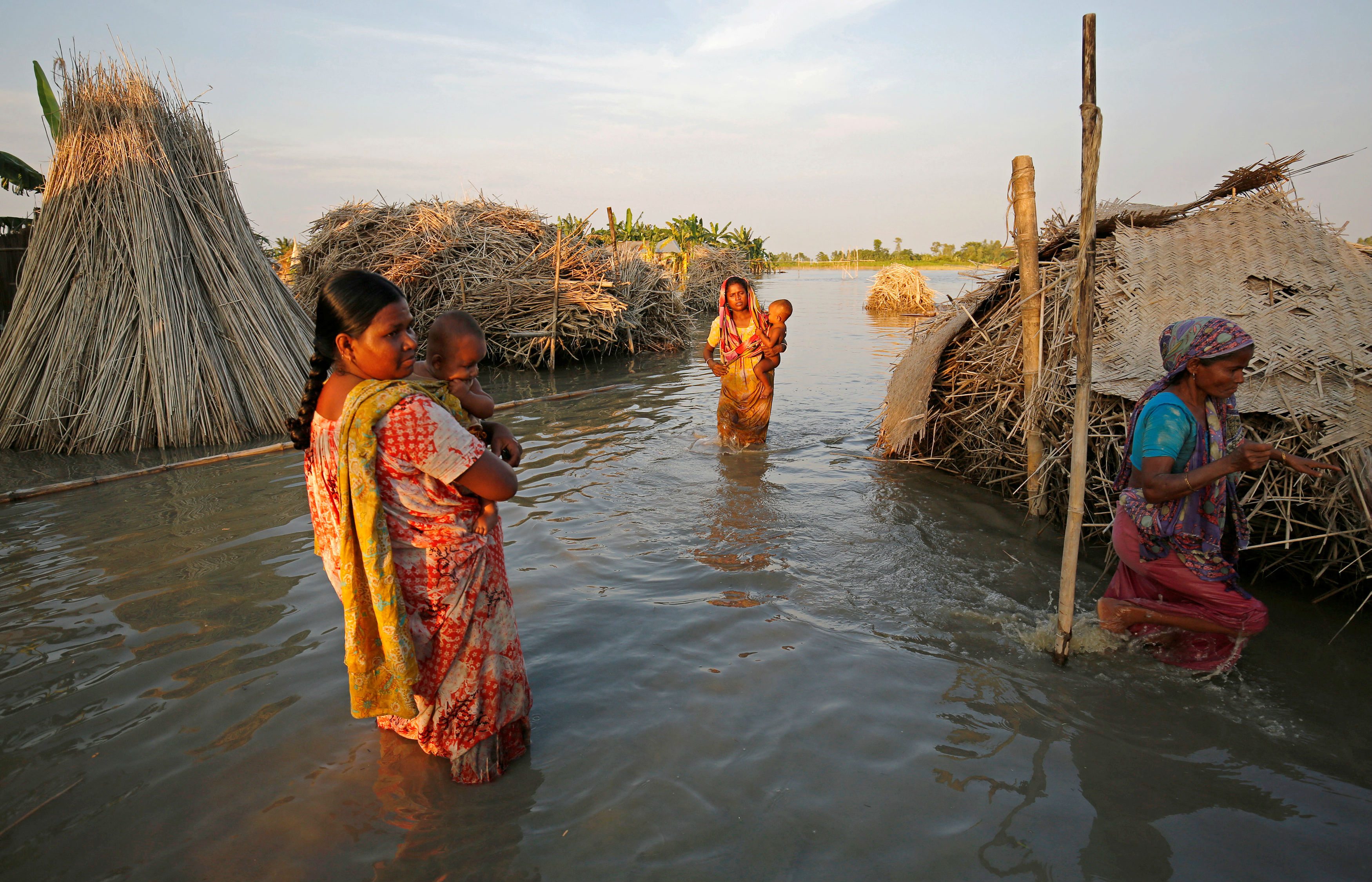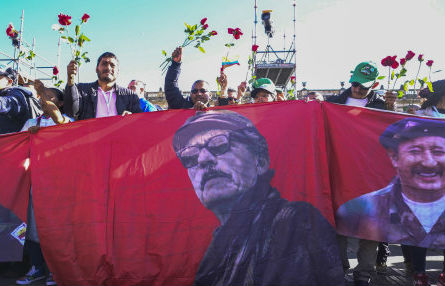Pope Francis will travel to Colombia tomorrow (6 September) for a visit aimed at encouraging the country’s new peace process that brought a 52-year civil war to an end. But the agreement reached by the country’s Government and leftist Farc rebels has left Colombia divided, with many arguing it is too lenient as it granted Farc militants amnesty and allowed them to participate in politics.
The Pope has been a keen supporter of the deal and in a video message ahead of the trip appealed for “a stable and lasting peace, so that we see and treat each other as brothers and not as enemies.”
Two days before flying to Bogota the other major rebel group, the National Liberation Army (ELN), declared a ceasefire with the Government. The Marxist-led ELN was founded in 1964, and at times numbered radical catholic priests among its leadership. The rebels said they would put down their weapons for the Pope’s visit, praising Francis for his focus on the poor.
A key part of the papal trip, which has the motto “let us take the first step”, will be a large scale prayer and reconciliation meeting in Villavicencio, south of Bogota, where the Pope will hear from people whose lives were affected by the violence; more than 260,000 were killed in the conflict and millions of people were driven from their homes.
In a referendum last October, Colombian voters rejected the peace accord by a margin of less than one per cent. It was then modified and the new peace deal was approved in parliament.
Between 6 and 11 September Pope Francis is to visit Medellin and Cartagena as well as Bogota and Villavicencio.
Despite the Peace Accords, some regions of Colombia still experience high levels of violence. Bishop Juan Carlos Barreto of the Pacific city of Quibdó wrote to President Juan Manuel Santos, repeating the need to end the violence impacting the Choco region. The area´s population is mostly indigenous or Afro-descended, and many social movement leaders have been murdered in the region. “I ask for short, medium and long-term structural action in order to resolve the problems of insecurity and violence that this territory faces,” wrote Bishop Barreto.
Ahead of the visit the Catholic aid agency Cafod issued a statement on peace and the role of the Church in Colombia. Clare Dixon, Cafod’s Head of Region for Latin America, said: “We reiterate the call Pope Francis is making for forgiveness and reconciliation, and an end to the violence and fear that have blighted the lives of millions in Colombia.”
“There is not yet peace in Colombia,” Ms Dixon pointed out. “There is ongoing violence by the ELN and paramilitaries that continues to displace communities. In some parts of the country the conclusion of peace talks with the FARC and demobilisation of guerrilla members has created a power vacuum. Territory previously under influence of the FARC guerrillas is now being taken over by paramilitary groups and drug traffickers.”
Ms Dixon expressed concern for the human rights workers who have been subjected to increasing violence since the signing of the peace accord.
“We support community leaders and human rights defenders who are essential for achieving peace, yet despite the peace deal with the FARC, violence against them is increasing,” she pointed out. “Fifty-one human rights defenders were killed in the first six months of 2017, a 30 per cent increase from the same period in 2016.”
Cafod has worked in Colombia for more than 40 years.
PICTURE: Colombian people gather in a FARC concert after Colombia's FARC rebel group transformed into a political party with it's new name ''Common Alternative Revolutionary Force (FARC)'', in Bogota, Colombia on 1 September, 2017



 Loading ...
Loading ...